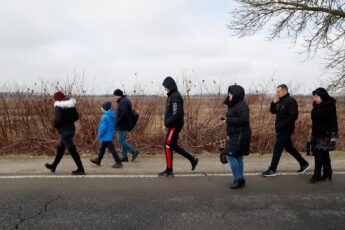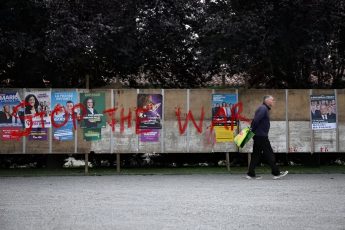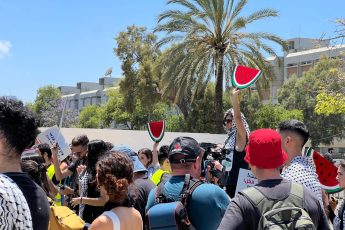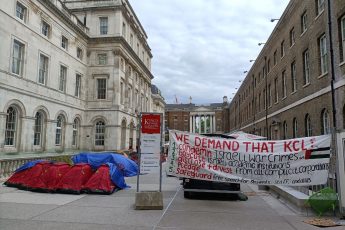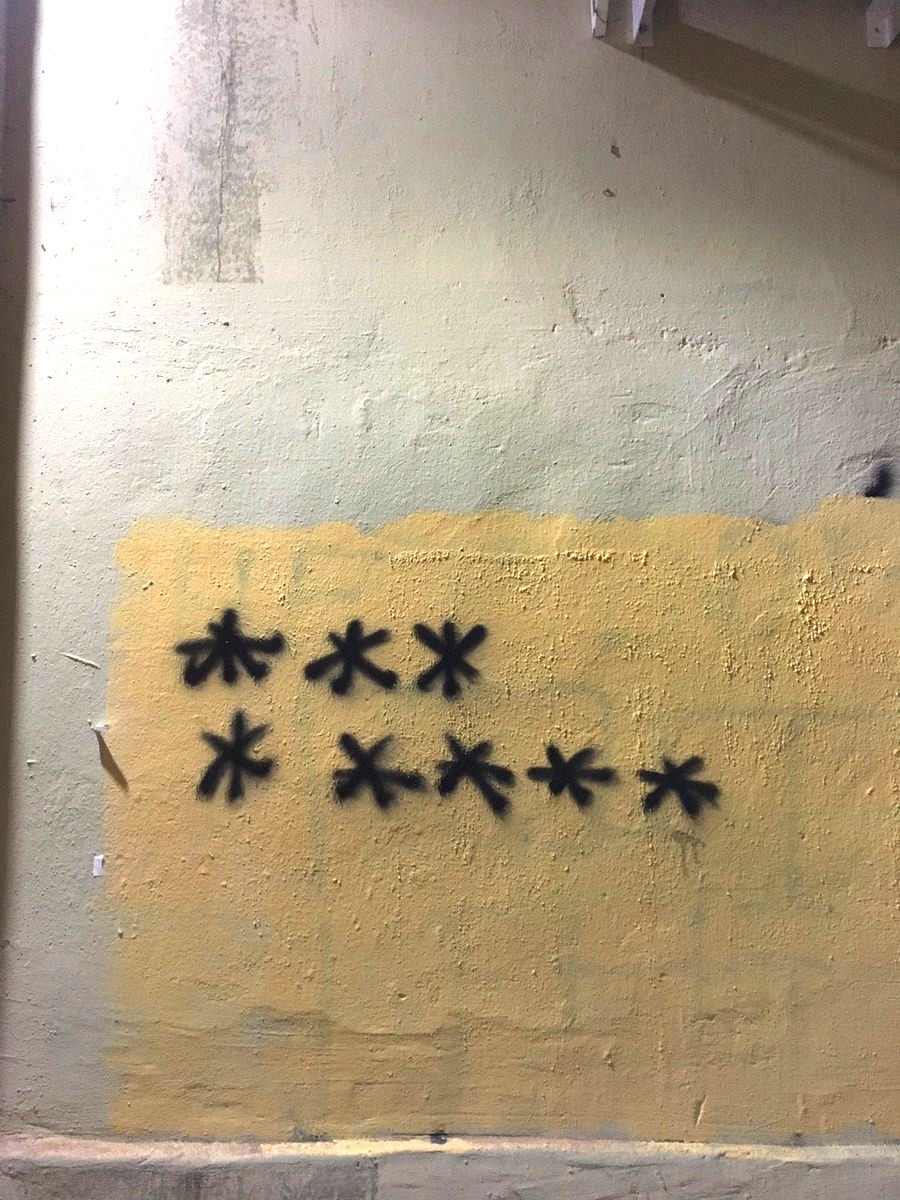
by TSS Platform
We publish the introductory notes to the third meeting of the Permanent Assembly against the War. Read here the outcomes of the meeting.
Welcome all to the third meeting of the Permanent Assembly against the War. As many of you know, we had a first meeting on the 20th of March at almost one month from the invasion of Ukraine, that resulted in the creation of the Permanent Assembly itself. Back then we discussed about what does it take to build a transnational politics of peace on the side of workers, migrants, women and lgbtqi people fighting to survive and to escape violence.
We met again on the 9th of April amid the horrors of the war. We discussed how to frame a new discourse around this war and how not to let Putin’s war kidnap our political imagination. We said that we condemn Putin’s aggression and want shelling and massacres to end, but our politics of peace is not a matter of agreements between states: it concerns what kind of world we want to live in, what kind of struggles we want to resume and push forward to build it. And this we need to build together with those who stayed in Ukraine and those who left, with those opposing the war in Russia, in the EU and beyond. It is a transnational politics against nationalisms, the state politics that led to war, that enhances exploitation, reinforces racism and patriarchy.
After these two important gatherings, each time participated by more than 100 people from different countries, we launched a 1st of May to strike the war. Groups and collectives from several countries responded to this call and organized actions, marches, and assemblies marking with an anti-war sign the celebrations of international workers’ day. A call to strike the war was launched also by the feminist anti-war resistance in Russia: they called for a political strike, urging people to gather in the squares with the excuse to feed pigeons to escape arrest and prosecution. In their call they wrote: “A strike is a way to refute our insignificance, to see our strength and subjectivity in a current situation of political vacuum. Let’s learn to strike again”. This is the message that we would like to put at the beginning of this assembly.
The war is still ongoing, the problems we have been facing in the last months are still there. And yet the conditions have been changing in the last weeks and we need to discuss today collectively how to frame our initiative from now on and how to enlarge our capacity to struggle together. In trying to grapple with these changes, in the call out for this assembly we said that we are in the middle of the third world war. This is not meant in the sense that we think all countries are going to be waging war, that the military confrontations will necessarily spread beyond Ukraine. We don’t mean to make easy historic analogies with the previous world wars. One of the accusations to Westerners reactions to this war coming mainly from the so-called global South is that this war has provoked outrage just because it is in Europe. Other wars and conflicts are ignored because they are somewhere else and hit non-white people. The differential treatment of refugees coming from Ukraine and those coming from other war contexts is a very clear sign of this racist core of Europe.
Acknowledging all this, we also think that it would be a mistake to derive from this that the war in Ukraine is not different from the wars of the last decades, and not simply because it is waged in Europe. The war in Ukraine is the manifestation of a global realignment: the post-WWII order has crumbled, and the states are globally aligning their politics to the possibility of waging war and are forced to take sides due to the global consequences of the war itself. To say this does not mean to dilute Putins’ responsibilities in an equivalence of opposing imperialisms. But it means acknowledging that this war is not simply a conflict between a fascist leader threatening the self-determination of an entire people and this latter responding and resisting for the sake its own existence. Further stakes are involved in this war. Such a national reading would not only be blind to wider consequences of this war – and to the fact that the Ukrainian people is divided by class and gendered differences – but would also give ground to people in other European countries, and not only there, to wash their hands and overlook the deep and dreadful signs of war lingering over everyone’s life now. Without taking anything away from the solidarity to those under shelling and directly hit by Russian violence, we need to enlarge our gaze and understand the extent to which we are already involved in this, the war has already changed everything.
The struggles we were part of before are changing their shape, even if we are distant from the war theater. Our lives, our working conditions, the very possibilities of fighting for social justice are at stake. We think that we should discuss together what are these changes that are clearly perceivable on different terrains of struggle.
I will mention just few macroscopic elements. 6 million people left Ukraine, most of them are women. Some of them is going back, so many other will stay in the EU. Almost 100.000 thousand Ukrainians refugees have found employment in Poland, in what the Polish government called “simple jobs”. This changes the existing European labor market, already built heavily on racist hierarchies. Being most of these refugees’ women, the patriarchal structure of the European welfare is going to be strengthened, while patriarchal violence and the obstacles for women wanting to be free are made harsher by the war.
In Ukraine a new labor legislation is being implemented, attacking collective agreements, and delivering to the bosses the power to withhold wages and dismiss workers, as denounced by Ukrainian trade unions and collectives. Presented as de-sovietization, these measures aiming at liberalizing the labor market are somehow akin to many labour reforms introduced in other Western European countries to align with the EU directives in terms of competition and freedom of enterprise. Now, in the face of Putin’s aggression, this attack to workers’ possibility to organize is presented as necessary, unavoidable, and as a sort of modernizing operation to endorse the European standards. At the same time, the higher expenses in rearmaments are justified by all member States in a moment when public money for supporting incomes facing increased costs of living and growing inflation would be more urgent than ever. The block of Ukrainians ports risks throwing into a food crisis millions of people around the globe.
The whole debate around sanctions and Russian gas and oil has at least revealed one thing: that in the agenda of the European and global institutions there is not an ecological priority as they tried to purport before the beginning of this war. There is rather a management of profits that sometimes meet with the needs of the green transition as a field of new investments. What is certain by now, is that all that has to do with the green transition is enmeshed with conflicts at gunpoint. Despite the hopes of someone, no pacific transition by a reunited humanity finally aware of the impending climate catastrophe is awaiting us.
We have the task of navigating this changing scenario and deepening the understanding of the ways in which the war makes it even more difficult to struggle. The risk we are facing is that those who are apparently safe and are apparently untouched turn their back and go back to business as usual. In front of the world war we are in, no one can think of managing the situation locally, everyone is involved. This world war forces each one of us to think about our situation within a world scenario. And this makes the Permanent Assembly against the War and gatherings of this sort more necessary than ever. Our task is becoming more and more complicated: we need not just to respond to an emergency but to give continuity to a politics of peace with which to resume and build back the capacity to struggle together transnationally. How to learn to strike again in this world war scenario, to recall once again the Feminist anti-war movement: our task is no less than this.


